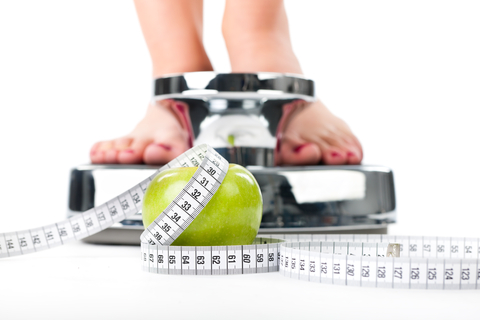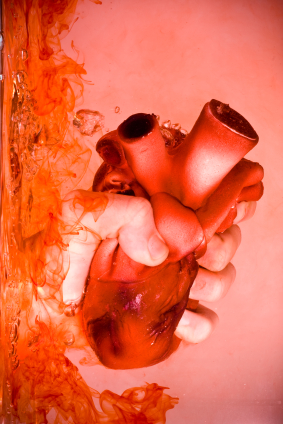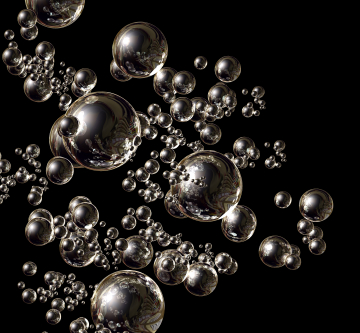Diet and fat and flashes! Oh my!
 A lot of you have written to me back channel to see if there is any evidence that diet affects menopausal symptoms. Up until now, I have run across many articles but little evidence on the topic. Hence, I was heartened to read about the positive effect of dietary changes and weight loss on hot flashes and night sweats in the online edition of Menopause.
A lot of you have written to me back channel to see if there is any evidence that diet affects menopausal symptoms. Up until now, I have run across many articles but little evidence on the topic. Hence, I was heartened to read about the positive effect of dietary changes and weight loss on hot flashes and night sweats in the online edition of Menopause.
The original intent of this study of over 17,000 women was to assess how a low-fat diet might benefit heart disease, breast and colorectal cancer and fracture risk among postmenopausal women. Nearly half of the women were asked to reduce their fat intake to only 20% of total energy and increase daily fruits and veggies intake to at least 5 servings daily, and whole grains, to 6 servings daily. Over the course of 5 years, they also received regular, intensive behavioral training conducted by a nutritionists and registered dietitians. The other half of the women only received a copy of Dietary Guidelines for Americans and other health-related materials. All were between the ages of 50 and 79.
Although weight loss was not a study goal, per se, on average women who agreed to changes in their diet lost an average of 4 pounds in the first year. And these women were able to reduce night sweats and hot flashes. What’s more? Women who lost more than 10% of their overall weight were significantly likely to eliminate their symptoms entirely (note that only a small proportion of women — 1% — reported having severe night sweats or hot flashes and symptoms were mostly mild to moderate in intensity). But, the findings get even more granular. The researchers write that when they did an additional analysis that women who lost the most weight (22 lbs) had more than twice the odds of eliminating moderate or severe vasomotor symptoms compared with women who maintained their weight.
Although the reasons are unclear, weight loss may reduce the amount of adipose tissue -the tissue that stores fat — and by default, reduce its insulation-type, thereby boosting the body’s ability to attack excessive body heat. Regardless, there are many reasons to maintain weight as we age. If this is an additional benefit, I say bring on the fruits and vegs!
Read More
Wednesday Bubble: Flashes and sweats and your heart
Be still my heart? Not this week. At least not as far as hot flashes and night sweats go. In fact, study findings that will be presented this coming weekend at the Endocrine Society ‘s 94th Annual Meeting suggest that hot flashes and night sweats that many women experience early in their menopause are not related to an increased risk for heart disease.
So what’s the 4-11?
Researchers have previously questioned whether or not timing of symptoms play a role in a woman’s increased risk for heart disease during menopause. They’ve found that experiencing symptoms only around the time menopause begins may actually reduce the risk for heart disease, or the risk of stroke, heart attack or death (compared with women who experience symptoms later). (If you’d like more about heart disease, aging and menopause, an archive of posts can be found here). To learn more, they have now analyzed the presence of markers in the body that have been linked to heart disease risk (e.g. high blood pressure, cholesterol, blood sugar, insulin, and specific blood markers that might indicate inflammation), in almost 60,000 women who were in menopause and had participated in the Women’s Health Initiative Observation Study.
These women were separated into groups, depending on the presence and timing of vasomotor symptoms:
1) No symptoms
2) Symptoms at start of menopause but not at the start of the study
3) Symptoms both at the start of menopause and the start of the study
4) Symptoms at the start of the study but not at the start of menopause
Importantly, women who had symptoms early in their menopause but not late did not appear to have elevated markers that may indicate heart disease risk. In comparison to this group, women whose vasomotor symptoms occurred only late in menopause appeared to have increased risk, mainly due to higher blood pressure and higher white blood cell counts. Those whose symptoms started early and persisted appeared to have higher levels of glucose and insulin, which indicated an increase in the risk for diabetes.
The researchers, who harken from Northwestern University, note that it’s unclear why timing of symptoms may influence heart disease, although the lead investigator, Dr. Emily D. Szmuilowicz has speculated that symptoms that occur long after menopause begin may indicated some sort of blood vessel abnormality. And while she and her colleagues have not suggested a strategy to attenuate this risk, it is clear that due diligence is needed. If your symptoms persist well into your menopause, see your health practitioner and ask him or her to run some tests. More importantly, hindsight is 20-20; be sure to instill lasting heart healthy habits early and maintain them while you age.
Read More
Wednesday Bubble: Cool is the new black
What are the odds that I would run across yet another cooling product? Seriously, it’s like a flash went off in someone’s brain that every menopausal woman in the United States needed to solve her issues through cooling. Mind you, I do believe that thermoregulation is an interesting strategy to combat the body’s out of whack thermometer. But when does the menopausosphere reach its saturation point?
Evidently, not yet.
This week, I bring you the Polar Pillow, guaranteed to “calm, cool and soothe you into the best sleep of your life” (as well as soothe hot flashes and night sweats).
This nifty 12+ pound pillow contains cooling gel infused with micro air beads and according to the manufacturer, works on its own by absorbing coolness from the air and then releasing it upon contact. The ‘science’ behind the Polar Pillow is an abstract presented at the Associated Professional Sleep Society 2011 meeting. In this study, researchers asked 12 people with insomnia to wear a cap that contained circulating water at cooling and varied temperatures. With the cap on, study participants with sleep issues took an average of 13 minutes to fall asleep (compared to 16 minutes for the healthy comparators) and they slept for about 89% of the time that they were in bed. Theoretically, the benefits are related to the fact that the brain (namely the frontal lobe) remains too hot to sleep and by cooling it down, one can turn down processes that keep the brain active and alert.
So, where do the night sweats and flashes come in?
They don’t.
At least not in the small pilot research that was conducted thus far.
However, rather than asking you to take my cynical word on the Polar Pillow, I decided to ask my friend Richard Laermer (who I inadvertently learned has used the pillow) to weigh in. And while Richard told me that he likes it because he’s a “hot” sleeper and it does cool him, he said that “it’s ugly and it seems to smell sometimes,” adding that it’s not him since he’s “fairly clean!” But here’s the rub:
” There are really really rough pointy edges that almost blinded my partner,” said Richard. “Go figure. Meanwhile, I wouldn’t recommend it…we can do better for a hundred bucks.” (Richard received it as a gift.)
So, let’s see:
- It’s ugly
- It smells
- It has really rough pointy edges making its utility in bed dangerous for one’s partner
And while it may cool the average hot sleeper, it has not actually been shown to help menopausal women. (Clearly, Richard is neither a women or menopausal.) And, despite being the target hot sleeper, Richard still wouldn’t recommend the Polar Pillow.
My take away?
Thermal is in. Cool is the new black. Enough said.
Read More
Flash dance? Yeah, maybe!
Did you ever watch Flashdance, the 1983 film that tanked in reviews but went on to be one of the highest grossing films that year? Guess it says a lot about our culture. Still, I am not going to say that I didn’t find it entertaining, or that Michael Nouri wasn’t hot in his day. But I digress…
For some reason, the film’s title came to mind when I stumbled across study that examined whether or not aerobic activity could ameliorate hot flashes and night sweats, perhaps because a lot of us dance around the issue rather than address it until it gets intolerable. Or perhaps because it makes a catchy header. Or maybe because Jennifer Beals works up such a sweat during her stand-in’s routine.
Regardless, on the heels of last week’s three-parter on ‘Forties fitness’ and motivating women, I thought I’d share some interesting information regarding physical activity, namely aerobic exercise.
Exercise. I’ve been pushing it for years because for me, it’s my drug of choice. What else offers benefits that include endorphins, wellbeing, bone health, metabolic booster and weight maintenance? And who would have thought that just 5o minutes, four times weekly could have a significant effect on the main cause of menopause flooding, including irritability, clothing changes, sheet replacement and crummy sleep?
That’s what researchers are reporting in Menopause. They discovered that when they assigned menopausal women to 6 months of aerobic training, the women experienced dramatic changes in mood swing, night sweats and irritability. Briefly, the women were divided into two groups:
- 50 minutes unsupervised aerobic training that with walking or Nordic walking (walking with ski poles) at least twice a week added to walking, Nordic walking, jogging, cycling, swimming, skiing, instructed aerobics or step class twice a week, plus two health lectures or,
- Health lectures twice weekly
They researchers were able to track target heart rates (64% to 80% of maximal) because the women in the aerobic training group were monitored and then given feedback All the women also reported the frequency/severity of menopausal symptoms (frequency of night sweats, mood swings, irritability, depressive mood, headache, vaginal dryness and urinary symptoms).
Although declines in symptoms (except vaginal dryness) were seen in both groups (which accounts for what they call a placebo effect, common to all studies), reductions in the prevalence of night sweats, mood swings and irritability were significant only in women engaging in regular aerobic activity. What’s more, because the women recorded their symptoms via a mobile phone, the likelihood that recall issues might come into play were reduced.
So, what about other studies that haven’t shown any benefit from exercise? The researchers point out that in their study, all the women had fairly substantial rates of symptoms (e.g. up to 60% had night sweats, 25% depression/irritability and 30% headache) while in other studies, the numbers at the start of the trials haven’t been quite as robust.
The upshot is that f you don’t care to jump on the hormone train, it can’t hurt to give aerobic activity a whirl. Just be sure to speak to a certified trainer and your health practitioner before diving in.
Read More
Hot flashes and night sweats. Mind over matter?
[youtube=http://www.youtube.com/watch?v=LH8xbDGv7oY]
Hot flashes and night sweats, oh my! They hit like a ton of bricks when you’re least expecting them and then exit as quickly as they arrived. They affect up to 70% of women and tend to worsen in late perimenopause and in menopause. And while hormone replacement therapy may decrease how bothersome they are and good health diminish frequency and severity, it appears that how well women believe they are controlling their symptoms outplays all of these other factors, so much so that perceived control may actually beneficially affect emotional distress, prevalence and severity of symptoms and how often women engage in behaviors that benefit their health.
Findings of a new study that’s just been published online in Maturitas run counter to many that came before it, studies that have shown that smoking and body mass index and alcohol consumption, as well as marital status, age, professional status, parity, educational status and income may significantly influence hot flash prevalence, frequency and severity. However, this time, researchers found that among 243 women between the ages of 42 and 60 years, the most important factor was control.
Participants were first asked to assess the intensity and intensity of hot flashes and night sweats on a five point scale (i.e. never to daily to almost every day and not intense to extremely intense). They were also asked to estimate perceived control over their symptoms using a validated rating scale. Finally, menopausal status, i.e. pre-, peri- and post- were assessed. Additionally, common sociodemographic and lifestyle factors shown to influence hot flashes and sweats were accounted for.
Importantly, women who used no medications or used soy and herbal products had higher perceived control over their symptoms than women who used hormone therapy. Moreover, this distinction had nothing to do with how severe their symptoms were as the researchers say that severity was similar among all three. Additionally, women who drank greater amounts of coffee appeared to perceive their symptoms as less severe than those who drank less. While previous research has found the opposite, i.e. caffeine intake predicts the occurrence of hot flashes, it is possible that the stimulation associated with caffeine might have boosted coping mechanisms and strategies, thereby leading to fewer or less severe symptoms. Still, perceived control ruled the day, leading to a significant beneficial impact on severity of flashes and night sweats. The reason? It’s possible that feeling in control leads to other behavioral changes, such as dressing in many layers to allow for adjustments as the inner temperatures increase, avoiding spicy foods or effectively controlling stress. However, the results also imply that how much control we feel we have strongly influences how we ultimately feel.
Clearly, more research is needed. But when it comes to hot flashes and night sweats, mind over matter may play a strong role.
Read More







